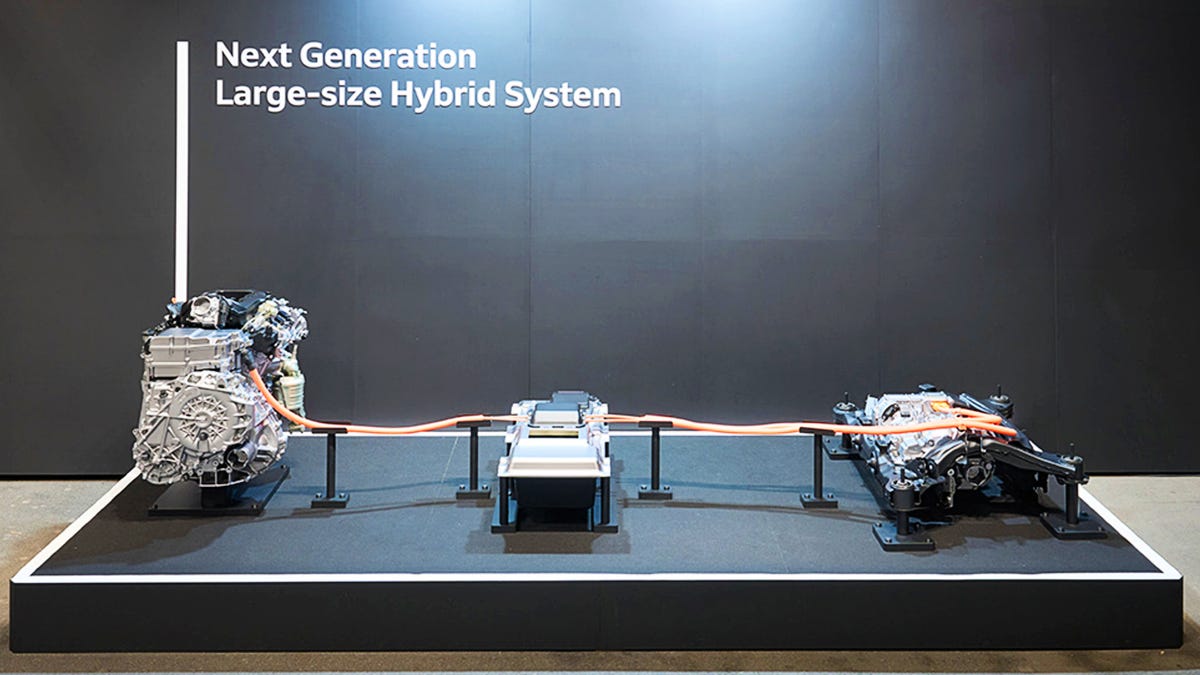Some of the most popular nameplates in the auto industry are going hybrid.
From the Toyota Camry to the Honda Civic, car buyers have a wide variety of fuel-efficient models to choose from. What if your lifestyle requires a larger hybrid vehicle like a midsize or full-size SUV?
Japanese automaker Honda is planning to make its large hybrid vehicles much more efficient than gas equivalents. Here’s what that means for Honda fans and car buyers.
Hybrid cars may be gamechangers for drivers looking to save money on fuel costs and reduce carbon emissions, but larger hybrid vehicles have a long way to go. Aside from a few outliers like the Toyota Sienna, most larger hybrid trucks, SUVs and minivans still have subpar fuel economy compared to lighter vehicles.
Honda wants to improve the fuel-efficiency of next-generation large hybrids “by more than 30% compared to the Internal Combustion Engine vehicles being sold in the same segment” according to the company. This is a bold aspiration, since it means large hybrid models would be significantly more efficient than their gas counterparts. Today’s reality is that large hybrid models get just a few more miles per gallon than gas equivalents (in most cases).
Honda’s Passport midsize SUV, one of the largest SUVs in its American portfolio, earns 19 miles per gallon in the city and 25 miles per gallon on the highway. If Honda is successful, a hybrid version of an SUV as large as the Passport could earn around 24 miles per gallon in the city and 32 miles per gallon on the highway. Such an efficiency boost would be a huge improvement over the fuel economy numbers of large gas Honda trucks, SUVs and minivans.
Unlike some of its main competitors, Honda hasn’t jumped head-first into electrifying its American portfolio. Automakers such as Toyota have taken a much more steady and consistent approach, introducing several hybrid-only nameplates.
Honda was late to the game with its electric SUV, the Prologue, though it achieved sales success. As for its hybrids, the HR-V, Passport, Pilot, Ridgeline and Odyssey remain gas-only models. The Civic (a recent hybrid), Accord and CR-V benefit from hybrid powertrain options.
Toyota has a whopping 15 hybrid options in its portfolio including several midsize and full-size trucks and SUVs. Several of these larger hybrids aren’t offered with typical gas powertrains, which may be indicative of market demand. Popular automakers like Hyundai, Kia, Lexus and more offer several hybrid SUV nameplates for the American market. Based on Honda’s recent announcement, the company is looking to get with the times and follow suit.
The days of gargantuan SUVs and minivans solely being powered by gas-guzzling massive engines are over. The Kia Sorento Hybrid is a three-row midsize hybrid SUV that achieves an impressive 36 miles per gallon. Its close relative, the Hyundai Santa Fe midsize hybrid SUV also earns 36 miles per gallon combined.
Toyota’s Grand Highlander Hybrid three-row midsize hybrid SUV is another family SUV that boasts impressive gas mileage for its size (36 miles per gallon). Large vehicles like the Toyota Sequoia and Toyota Sienna minivan prove that any vehicle can benefit from having a hybrid powertrain.











